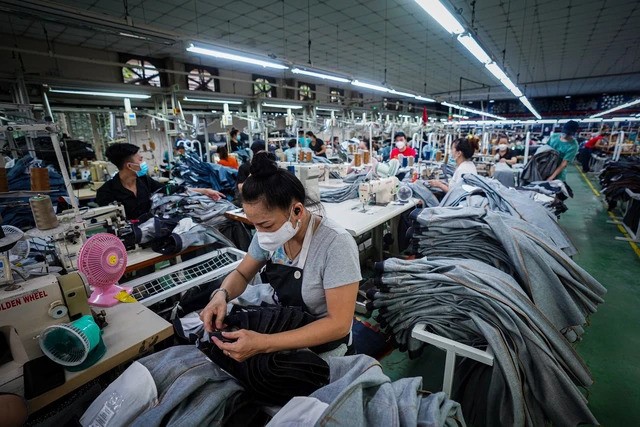Businesses need to have solutions and roadmaps to improve their competitiveness and innovate technology for green and sustainable production, thereby creating carbon credits.

Businesses need to have solutions and roadmaps to improve their competitiveness and innovate technology for green and sustainable production, thereby creating carbon credits, according to experts.
Global carbon credit market has been vibrant in the past few years and many businesses and organisations in Việt Nam are interested in buying and selling carbon credits, said Dr. Nguyễn Phương Nam, a UN’s greenhouse gas inventories review expert and general director of KLINOVA Climate Innovation Consulting and Services JSC, at an Entrepreneurs' Café event organised by the HCM City Union of Business Associations in HCM City late last week.
However, the country does not have specific greenhouse gas emission quotas for enterprises, who therefore do not know whether they are required to buy or could sell carbon credits, Nam said.
Under its roadmap for developing the carbon market, Việt Nam will trial a carbon credit exchange from 2025 and officially operate it from 2028, linking it with the regional and global markets.
Nam said that while waiting for the legal framework to be completed, businesses must prepare now to create carbon credits and be ready to enter in the market.
The world has recognised that Việt Nam has great potential in generating carbon credits, especially from forests, agriculture and energy. Many Vietnamese businesses also have the potential to reduce greenhouse gas emissions, but to be able to create carbon credits, they are required to have a vision for sustainability, invest in clean technology and prepare for the shift to green and sustainable supply chains, he said.
The results of carbon credits could not be achieved overnight and could take at least three years and need great determination from business chiefs, Nam warned.
First of all, businesses are required to register their projects with environmental authorities. They must conduct assessments of their current emission status and make a greenhouse gas inventory as accurately and transparently as possible, and, on that basis, government and specialised agencies would allocate emissions quotas for them.
From that, businesses would know whether they have surplus carbon credits to sell or need to buy to cover their shortfall, he said.
According to speakers at the event, 1,912 businesses in the country with significant emissions are required to conduct greenhouse gas inventories and will soon be subject to emission reduction quotas.
In HCM City, Cao Tung Sơn, head of the Department of Hydrometeorology and Climate Change under the city's Department of Natural Resources and Environment, said there are 140 enterprises in the city required to conduct emission inventories.
He disclosed that following instructions from the Ministry of Natural Resources and Environment, the city has conducted a review and identified an additional 131 enterprises that are required to inventory their emissions.
His department would provide training to businesses on greenhouse gas inventorying, as well as organise seminars, meeting with businesses and invite experts to provide them with the latest information on legal regulations related to the carbon credit market, he said.
Nguyễn Ngọc Hòa, chairman of the HCM City Union of Business Associations, said the city's businesses have the potential, advantages and opportunities to participate in the carbon credit market, but they first need to improve competitiveness and technology for green and sustainable production. — VNS
- Tags
- carbon credit market





